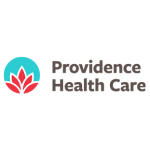
Postoperative Patient Management Platform (PPMP)
Using AI to proactively deliver personalized patient care through early detection and intervention.
Project Overview
Updated November 27, 2025
The Problem
Studies have found nearly 20% of surgical mortality cases are potentially preventable if caught earlier.1 Other adverse outcomes following surgical procedures not only impose heavy burdens on patients, but strain hospital resources and escalate healthcare costs. Associated costs of additional treatments following complications due to prolonged hospital stays and readmissions are estimated to be between 1.5 to 4 times higher than for primary admissions.2 3
Conducting accurate patient risk assessments in real-time to implement proactive mitigation strategies can help reduce potential complications and adverse events, alleviate patient burden, reduce mortality, and lower costs.
How We Are Solving It
Led by FluidAI in collaboration with Medtronic, Excelar, Providence Health Care Ventures (PHCV) and the University of Waterloo; this project aims to develop an advanced postoperative patient management platform (PPMP) as a strategic continuation of the initial Continuous Connected Patient Care (CCPC) project. Together, adhering to the highest privacy, security and ethical governance framework, the consortium’s work will utilize in-hospital data collected during CCPC to develop and optimize several artificial intelligence (AI) and machine learning (ML) algorithms for patient risk stratification, actioned through a predictive platform that will accurately assess the risk of postoperative complications, such as anastomotic leaks and respiratory depression following general and gastrointestinal (GI) surgeries.
Throughout this project, based on privacy, ethics and security approvals, the consortium will utilize data available in electronic health records (EHR), collected through Origin, which is FluidAI’s abdominal drain compositional analysis device, as well as Medtronic’s vitals monitoring solutions used in CCPC. The University of Waterloo will conduct a user needs assessment to ensure the solution meets customer requirements. Initial deployment will be conducted through Providence Health Care (PHC)’s St. Paul’s Hospital, a 435-bed adult acute care hospital in downtown Vancouver, B.C., with cardiac, critical care, renal, mental health, maternity, acute medicine, and surgery expertise, and then expanding to other hospitals.
By utilizing these data sets into the PPMP solution to provide actionable insights, it will be able to assist surgeons in making quicker and more informed decisions regarding patient care. The solution will enable proactive, personalized care delivery based on early detection and intervention using AI, thus providing surgeons the ability to act upon early predictions and warnings instead of waiting for clinical symptoms to manifest. It will also generate AI-powered risk models for hospital metrics, such as length of stay, 30-day reoperation, and 30-day readmission, allowing healthcare providers to proactively manage patient care and allocate resources.
Ultimately, this project aims to provide personalized patient data visualization alongside predictive insights towards proactive care, improved patient outcomes while reducing the cost of care delivery.





